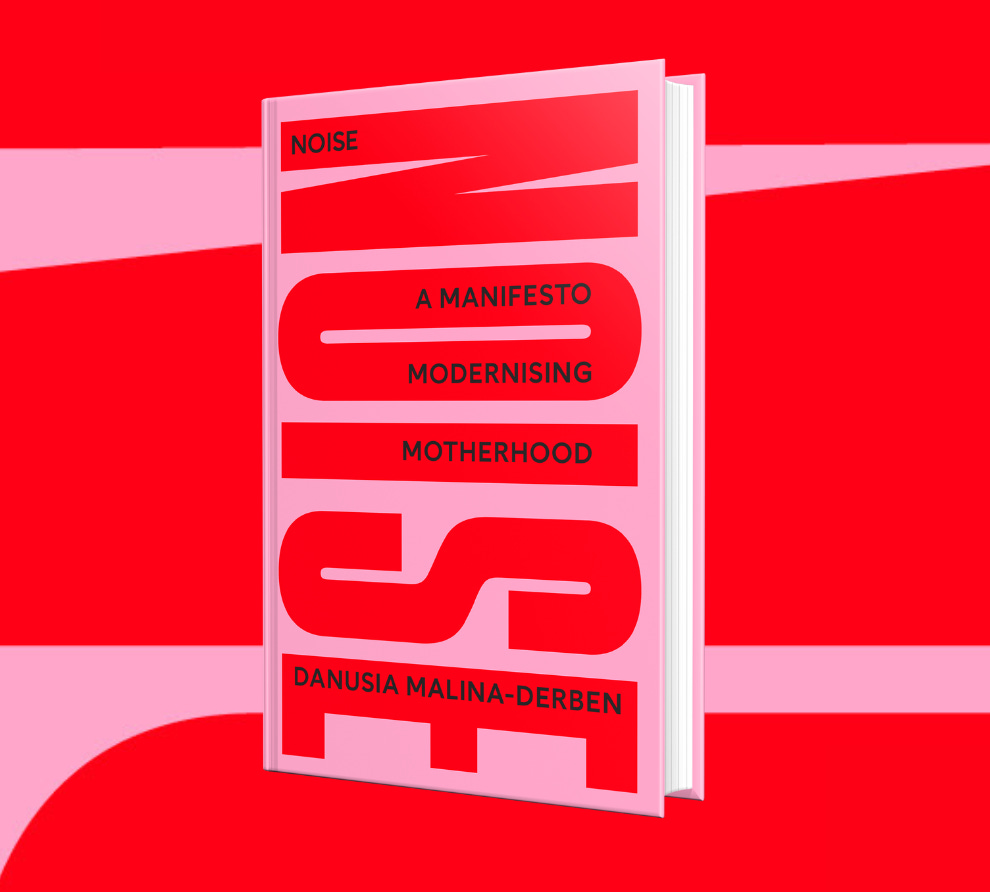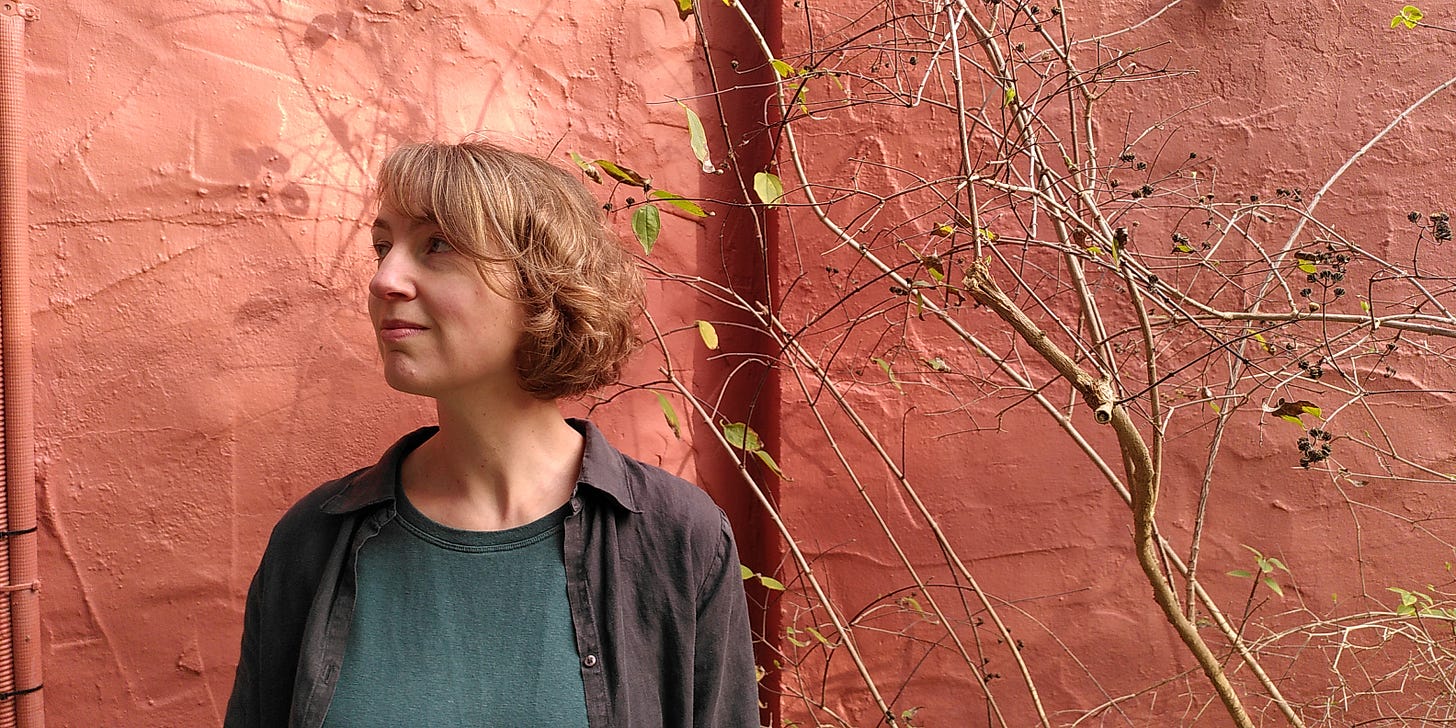Welcome to Parents That Write.
Parent writers, artists, and creators are more than just their ‘chaos’—we’re publishing books, dropping albums, optioning screenplays, and making magic every day.
How do they do it? That's what we're here to find out. Each week, my guests tackle eight quickfire questions, plus a few wildcards. But first, a peek into my own creative life:
No-Fluff Notes from my Writing Life
After Rodrigo (book cover designer) listened to the private podcast I recorded for him, he finally understood the true heartbeat of NOISE. This isn’t your average motherhood book.
I wasn’t reinforcing the usual tropes—guilt, sacrifice, or unconditional love as the peak of a woman’s purpose. NOISE is a bold manifesto that tears apart those assumptions and invites readers to rethink motherhood entirely. Rodrigo got that and knew he had to capture its essence visually.
He dug deep into his creative process, translating NOISE's messages and arcs into a concept.
Weeks passed. I waited. Trusted. And then his email landed: I'm ready to unveil THE cover.
One single design, not multiple options. It was galvanising stuff. But what if I hated it? Where would that leave us?
I froze. Left his email unopened for days, paralysed by fear. Eventually, holding my breath, I clicked.
He had nailed it. The word NOISE slapped across the cover in a reverse embossing technique1—dramatic, tactile, impossible to ignore. The colours were strong, arresting, exactly what the book needed. Rodrigo had delivered a cover that wasn’t just visually striking; it carried the entire spirit of the book in its design.
Next week, I’ll reflect on how the cover shaped NOISE’s early reception (hint: it went well) and how it aligned with the book’s identity. My guest, also joins me to talk about how she balances creative life and parenthood. Hope you’ll join us!
My interview today is with who writes Forgetting the Self publication. She examines identity, neurodivergence, and Zen practice in a self-conscious world. Thoughtful and reflective, it invites readers to explore meaning and truth through the lens of both difference and belonging.
Share a broad snapshot of your life. Who are you parent to and/or have caring responsibilities for?
I have an 8 year old child and we've been home educating for the past three years. We started this because, as for many autistic children, school did not work for him at all and, though it didn't feel like a choice at the time, I've come to see the value in children having autonomy over their own learning. I love our days together. I'm quite aware I wouldn't have been able to do this and also continued writing without the support of my partner. In 2024 I also had a bit of financial support from the Scottish Book Trust that means I can employ a babysitter a couple of afternoons each week and this has been a game changer.
Where can we find you?
I write about neurodivergence, identity and non duality at:
Can you share favourite praise for your writing?
Former BBC political editor Brian Taylor, one of this year's judges of the Anne Brown Essay Prize, said of my winning essay: “Our final choice reflected the power and candour of the personal story, the depth of the accompanying research and analysis plus, of course, the quality of the writing."
Why do you write?
Because I'm not always very good at expressing myself verbally! (And because, since childhood, I always loved to read as a way to better understand myself and others.)
What does the inside of your writing mind look like?
Lots of self-doubt and resistance. A tangle of branches. But I do like following sentences to see where they take me and enjoy the moments when sense starts to emerge from the chaos.
How is your ability to write affected by being a parent and your ability to parent affected by your writing?
Surprisingly (to me) I've found that having less time makes me value the time I have. I get more done. And being embedded in our small family ties me to the world, which makes the writing more meaningful.
I'm not sure how writing affects my ability to parent – maybe I'd have to ask my son. But I do strongly believe it's important for parents (particularly mothers) to have a life of their own; I think if my whole life was lived for the sake of my child it might feel like a lot of pressure to him. And I like the idea that we're creating and learning alongside each other. Though, saying all this, I do sometimes get frustrated with the lack of a peaceful writing place.
How often do you write with your child around or not, and what kind of writing do you get done when your child is nearby?
I find it really hard to split my attention and so I hardly ever write when I'm with my son. Sometimes he's in the next room with my partner and then headphones help – otherwise at least one of my ears is on them.
What is your best writing habit and how did you discover it?
I still struggle to get started each day. I've found that what works best for me is writing longhand in a cheap notebook for 20 or 30 minutes – and giving myself permission to write absolute crap. Usually once I've done that I'm clearer about the next step.
What are the three most important characteristics of being a writer who is a parent?
➡️ Time to write.
➡️ Deadlines (so you can't endlessly put it off).
➡️ Practical parenting support.
What or who is your secret writing weapon?
My partner.
What or who has been the most significant creative influence in your life?
This has never occurred to me before, but I'm going to say my child. Perhaps because he's never been to school, he's used to playing with ideas and following his own creative impulses without the need to prove anything.
Once it was cardboard box forts on the kitchen floor. Now it's mostly secret bases in Minecraft or making a song on GarageBand. But it's the same thing. He's confident to share his work. He's never bored. And he rests when he needs to rest. Thanks to him, our home is a creative space.
What’s your best writing time?
First thing in the morning, before I'm awake enough to second guess myself.
You’re a writer: name 3 of your procrastination techniques.
Making coffee.
Making snacks.
Telling my partner and friends that I don't like writing, I'm not good at it, and I'm going to give up.
Do you use any productivity hacks like toggling, Pomodoro, Focusmate?
Boring soundscapes (nothing with lyrics or too much of a melody). Currently I like alpha wave binaural beat tracks.
What are your favourite/preferred writing conditions in terms of clothes, environment, food you eat and anything else that helps you write?
Coffee, notebook, favourite chair.
Closing out this Column with:
“Writing is a part of my life; cooking is a part of my life. Making love is a part of my life; walking down the street is a part of it. Writing demands more time, but it takes from all of these other activities. They all feed into the writing. I think it’s dangerous to concern oneself too damned much with “being an artist.” It’s more important to get the work done. You don’t have to concern yourself with it, just get it done. - - Maya Angelou
YOUR TURN ~ Sarah writes because she struggles to express herself verbally. ’s circus-like brain finds clarity when she writes thoughts down. For , writing is a grounding force that improves every part of her life—parenting, coaching, and simply being.
WHY DO YOU WRITE? ✍️
Till next week,
Danusia x
A debossed design is one where the wording etc is sunk into the paper or card.














all my notes are fluffy ( irene's cats)<book upcoming>......
That cover is PHENOMENAL